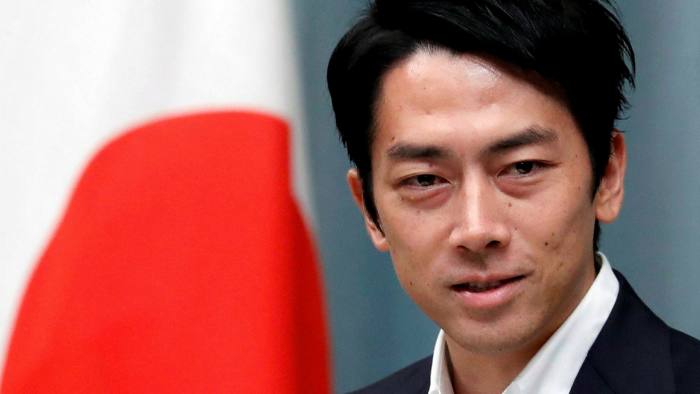

Japan’s environment minister has hailed a “turning point” in his country’s climate change policy after vowing to slash its much-criticised support for coal power in the developing world.
In an interview with the Financial Times, Shinjiro Koizumi said the new strategy on infrastructure exports announced last week marked a clear change in approach, following opprobrium at last December’s UN climate conference in Madrid.
The new policy will curtail an important source of official finance for coal power stations in south-east Asia and help spur a regional shift towards cleaner energy — if Japan implements it rigorously.
Although the country will still support the export of coal power turbines under some conditions, Mr Koizumi said that in practice they would be difficult to meet. “[Until now] Japan’s attitude was that if we can sell, then we should,” he said. “That is completely changed. In principle, there will be no support.”
Tokyo has provided billions of dollars of low-interest loans to build coal power plants in India, Vietnam and Indonesia through the Japan Bank for International Cooperation, using equipment from manufacturers such as Mitsubishi Heavy, Hitachi and Toshiba.
These projects have come under attack from environmental campaigners because they set fast-growing economies on a path towards decades of high carbon emissions, contributing to future climate change.
Under the new policy, Japan will only support exports of the most efficient ultra-supercritical generators, and only when the buying country has a decarbonisation strategy in place. Combined with the falling cost of renewable power sources such as solar, and the reluctance of banks to finance coal, that will make it difficult to get projects off the ground.
Mr Koizumi said that international criticism at the COP25 conference in Madrid had hit home. “There was a lot of reporting in Japan about just how much criticism we got over coal,” said the minister, son of former prime minister Junichiro Koizumi and a rising star in politics. “Japan hadn’t really noticed before. Until now, it’s been all about nuclear in Japan.”
After the meltdowns at Fukushima in 2011, much public energy in the country has gone into opposing nuclear power, but coal generation has risen to compensate for all the reactors that remain offline.
Last week, the economy ministry announced a new policy on domestic coal generation, aimed at phasing out older coal plants that supply about 16 per cent of power nationwide. However, two-thirds of that capacity will be replaced with new, more efficient coal generators, committing Japan to burn fossil fuels far into the future.
An alliance of environmental groups, including the local branches of Greenpeace and Friends of the Earth, said the pledge not to finance coal plants overseas in principle was a “step forward”, but the government should have adopted an outright ban.
“Moreover, the principles leave a major loophole, since they do not apply to projects that are at the planning stage,” said the group, noting that three big coal projects — Vung Ang 2 in Vietnam, Indramayu in Indonesia and Matarbari Phase 2 in Bangladesh — were already in the pipeline.
Guest post from Financial Times




